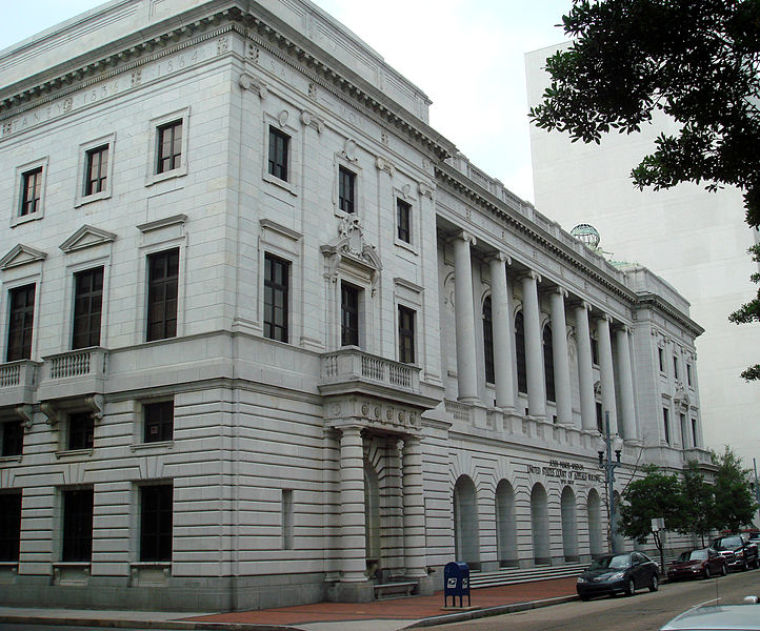Student-led prayers at Texas school board meetings are constitutional, appeals court rules

A federal appeals court has unanimously ruled on Monday that a Texas school district can open its board meetings with student-led prayers.
The three-judge panel with the Fifth U.S. Circuit Court of Appeals ruled that the prayers conducted by students during board meetings of the Birdville Independent School District do not violate the Establishment Clause of the First Amendment.
The court stated that the prayers are similar to those presented in a legislative body, and it pointed to the nation's history and longstanding practice of presenting prayer at public events.
"[D]ating from the early nineteenth century, at least eight states had some history of opening prayers at school-board meetings," Judge Jerry Smith wrote on behalf of the panel, according to Christian News Network.
"And [Supreme Court rulings] show that there was a well-established practice of opening meetings of deliberative bodies with invocations. Such practices date from the First Congress, which suggests that 'the Framers considered legislative prayer a benign acknowledgment of religion's role in society,'" the judge added.
The judge also cited the U.S. Supreme Court's 2014 decision which allowed the town of Greece in upstate New York to start board meetings with prayer.
The court further noted that most people who attend the meetings are adults who are free to enter or leave at any time.
The ruling also reversed a lower court decision that denied the school board members of "qualified immunity" and dismissed the case against them.
The case against the school district was filed by the American Humanist Association (AHA) in 2015 on behalf of Isaiah Smith, a 2014 Birdville High School graduate who believed that the district was wrongfully endorsing Christianity through the student-led prayers.
Smith, who was suspended in 2013 for ripping pages of the Bible during class, said that the prayers made him feel like an outsider at the meetings.
"Plaintiff Smith considers the school board's prayers to be divisive and exclusionary, leaving him to conclude that he is unwelcome at school board meetings and a political outsider in his own community," the lawsuit stated.
In August, U.S. District Judge John McBryde ruled in favor of the plaintiff, but the school district appealed. McBryde's ruling was overturned by the appellate court on Monday.
AHA lawyer Monica Miller said that they are considering their options, which include asking the appeals court to review the case.
 Christians don't have to affirm transgenderism, but they can’t express that view at work: tribunal
Christians don't have to affirm transgenderism, but they can’t express that view at work: tribunal Archaeology discovery: Medieval Christian prayer beads found on Holy Island
Archaeology discovery: Medieval Christian prayer beads found on Holy Island Presbyterian Church in America votes to leave National Association of Evangelicals
Presbyterian Church in America votes to leave National Association of Evangelicals Over 50 killed in 'vile and satanic' attack at Nigerian church on Pentecost Sunday
Over 50 killed in 'vile and satanic' attack at Nigerian church on Pentecost Sunday Ukrainian Orthodox Church severs ties with Moscow over Patriarch Kirill's support for Putin's war
Ukrainian Orthodox Church severs ties with Moscow over Patriarch Kirill's support for Putin's war Islamic State kills 20 Nigerian Christians as revenge for US airstrike
Islamic State kills 20 Nigerian Christians as revenge for US airstrike Man who served 33 years in prison for murder leads inmates to Christ
Man who served 33 years in prison for murder leads inmates to Christ


 Nigerian student beaten to death, body burned over ‘blasphemous’ WhatsApp message
Nigerian student beaten to death, body burned over ‘blasphemous’ WhatsApp message 'A new low': World reacts after Hong Kong arrests 90-year-old Cardinal Joseph Zen
'A new low': World reacts after Hong Kong arrests 90-year-old Cardinal Joseph Zen Iran sentences Christian man to 10 years in prison for hosting house church worship gathering
Iran sentences Christian man to 10 years in prison for hosting house church worship gathering French Guyana: Pastor shot dead, church set on fire after meeting delegation of Evangelicals
French Guyana: Pastor shot dead, church set on fire after meeting delegation of Evangelicals ‘Talking Jesus’ report finds only 6% of UK adults identify as practicing Christians
‘Talking Jesus’ report finds only 6% of UK adults identify as practicing Christians Mission Eurasia ministry center blown up in Ukraine, hundreds of Bibles destroyed: 'God will provide'
Mission Eurasia ministry center blown up in Ukraine, hundreds of Bibles destroyed: 'God will provide' Church holds service for first time after ISIS desecrated it 8 years ago
Church holds service for first time after ISIS desecrated it 8 years ago Burger King apologizes for 'offensive campaign' using Jesus' words at the Last Supper
Burger King apologizes for 'offensive campaign' using Jesus' words at the Last Supper Uganda: Muslims abduct teacher, burn him inside mosque for praying in Christ’s name
Uganda: Muslims abduct teacher, burn him inside mosque for praying in Christ’s name